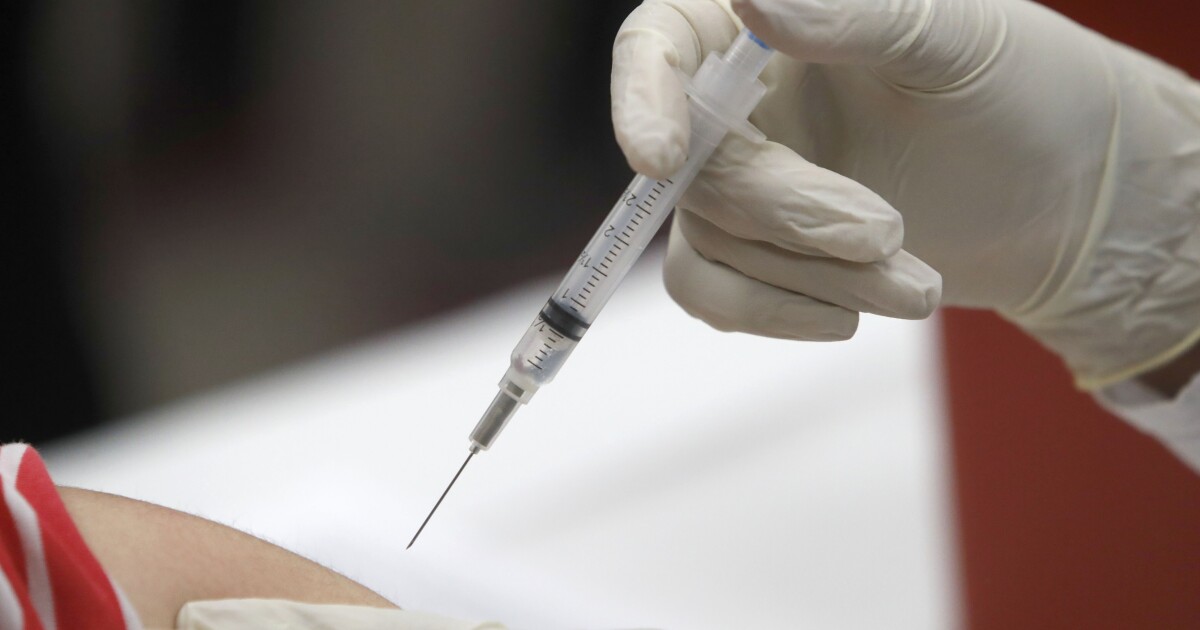The US health authorities know that, with the issue of COVID-19, the population is fed up with vaccines, but they are still calling on everyone not to forget to get the flu vaccine.
The incidence of flu has fallen to unprecedented levels amid the pandemic. In the United States and Europe it was almost non-existent last winter, and the Southern Hemisphere has just passed its second flu season in times of pandemic, with few cases.
But now that schools and businesses are reopening and international travel is resuming, the flu threatens to rebound. The question is whether it will come timidly or resurface with fury, overwhelming hospitals already overflowing with COVID-19 patients.
“People are sick of having to go out and get a vaccine,” admitted Dr. Richard Webby of St. Jude Children’s Research Hospital in Memphis.
However, after 18 months of little exposure to the flu virus, “it is possible that as a population we no longer have as much immunity against this virus as we did before,” Webby said.
“It is perfectly logical to go out and get this vaccine that would at least avoid symptoms that could be quite severe,” he added.
Here are some questions and answers on the topic of flu vaccines:
1) Q: Who needs to get the flu shot?
A: The US health authorities recommend that practically everyone get the flu vaccine, starting at six months. The most vulnerable are those over 65, young children, pregnant women and those who suffer from certain health conditions such as heart or breathing difficulties.
2) Q: Why do I have to wear one this year when the incidence of flu has been so low?
A: It is true that the incidence of flu has dropped a lot, thanks in part to preventive measures against COVID-19, such as staying home most of the time and putting on a mask. But it is also true that in the summer, in places where such measures were lifted, there was an unusual increase in children hospitalized with another virus, called RSV, which usually proliferates in the winter. That bodes well for what will happen if the incidence of the flu rebounds.
3) Q: What is the flu forecast for this winter?
A: It is very difficult to provide a flu forecast. But this fall there has been a small increase from the fall of last year in some countries like China, said Webby, who runs a flu center at the World Health Organization. And today the population could be more vulnerable: Before the pandemic between 15% and 30% of the population was exposed to the flu each year and that exposure has disappeared.
“If the flu makes even a minimal presence, it will have a much better chance of spreading this season,” Webby said.
3) Q: When is the best time to get a flu shot?
A: Now. Experts recommend doing it before the end of October. In the United States, it can be done at doctor’s offices, pharmacies, or local health departments. And most people with health insurance don’t have to pay.
4) Q: If I already had the COVID-19 vaccine, do I really have to get the flu vaccine?
A: Vaccines against COVID-19 protect you from COVID-19; flu shots protect you against the flu. They are totally different. One can suffer from both viruses at the same time, or separately.
“Don’t take a double hit” and get both shots, recommends the American College of Emergency Physicians. Currently in the United States, COVID-19 vaccines are available to everyone 12 years of age and older.
Flu vaccines are not as powerful as other vaccines, but if someone gets the flu despite the vaccine, their symptoms will most likely be much milder.
5) Q: Can I get the COVID-19 and flu vaccine in the same place?
A: Yes, the US health agencies assure that there is no problem in putting both on the same day in the same place.
6) Q: What is the best flu vaccine?
A: The flu is constantly evolving, and the vaccines available each year are designed to combat the variant that experts envision as the most likely. This year, all flu vaccines offered in the United States protect against all four circulating variants.
It can be done by traditional injection, or by nasal spray. There are also vaccines specially designed to strengthen the immune systems of the elderly. There is also a special type of vaccine for people allergic to eggs, which are used to make the inoculations.
7) Q: How many flu vaccines are available?
A: US health authorities forecast 188 million to 200 million doses. Nearly 194 million vaccines were distributed last winter, a record number.
–


